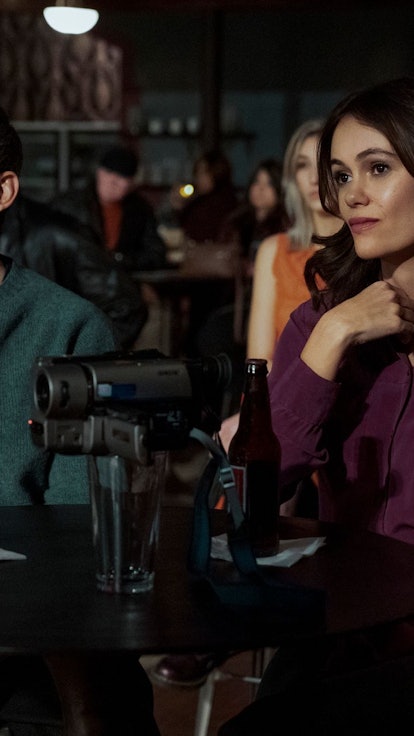Allow me to channel my inner Seinfeld for a moment: "What is the deal with all of these demon-worshipping New York City apartment-dwellers?" From Rosemary's Baby to the short-lived ABC masterpiece 666 Park Avenue, Hollywood has long been obsessed with the idea of unsuspecting people moving into seemingly perfect apartment buildings that are overrun with evil cult members. Archive 81 continues the theme with the Vos Society, but is the society based on a real cult?
The Vos Society is extremely specific in their interests. Iris Vos and her followers wait patiently for the Comet Kharon to pass by Earth, at which point they serve up a human sacrifice to the demon/god Kaelego, along with the blood of a Baldung witch, in hopes of thinning the veil between the worlds enough for Kaelego to enter our reality. So far, their efforts have all failed and instead led to lots of unnecessary deaths.
While the Vos Society is fictional, the cult is eerily similar to a variety of real-life cults that have cropped up over the years. Although, in defense of New York City, it seems to attract far fewer cults than Hollywood would have you believe. In the 1920s, when the fictional Vos Society emerges on Archive 81, California was the place to be for cults of all stripes. While there's no one specific cult from that time period that seems to be influencing the writers, shades of the terrifying Blackburn Cult, as well as the slightly more respectable Hermetic Order of the Golden Dawn (which was most active in the late 1800s), are apparent in the Vos Society's practices.
But while the real-life inspiration for the demon-raising part of the Vos Society is hard to pin down, the comet bit is far easier to explain.
Heaven's Gate Appears To Be A Major Inspiration For Archive 81's '90s Storyline
It's no accident that Melody's quest to find her birth mother takes place in the '90s. While "Satanic Panic" is mostly associated with the '80s, the phenomenon continued into the early '90s as well. Add in a dash of fascination with aliens, a general mistrust of the government, and big events like the looming specter of Y2K and the celestial appearance of the Hale-Bopp comet, and you had a recipe for paranoia. (I'm just saying, there's a reason The X-Files resonated so deeply with its fans.)
Against this cultural backdrop, a music professor named Marshall Applewhite seized an opportunity to revitalize his cult known as Heaven's Gate. In 1995, when Hale-Bopp's trajectory was discovered, he convinced his followers that an alien ship was flying behind the comet. He and his followers then went about preparing for Hale-Bopp to pass by Earth in hopes that they would be freed from their human "containers" and taken away on the ship. Instead, Applewhite and 38 of his followers committed mass suicide on March 26, 1997.
The Vos Society's fascination with the fictional Comet Kharon (named after ex-planet Pluto's moon Charon) closely mirrors the Heaven's Gate tragedy. At the behest of Samuel (who is posing as a professor — no doubt a nod to Applewhite), the residents of the Visser gather in 1994 to await Comet Kharon's approach in order to perform the ritual that will allow Kaelego to pass through the veil and usher in a new world order.
Now, Kaelego is described as a demon/god from another world, but he definitely looks like an alien. That in addition to the society's general goal of trading one world in for another chillingly evokes the Heaven's Gate cult.
For the most part, Archive 81 takes its inspiration from the horror genre as a whole, but in the case of the Vos Society, the cult's ideals have an all too real '90s counterpart.
Images: Quantrell D. Colbert/Netflix; Netflix
